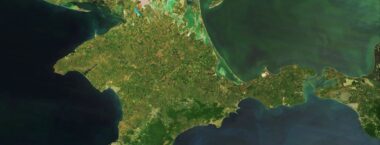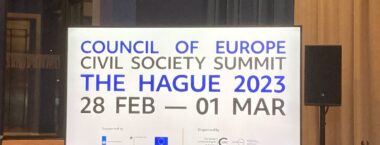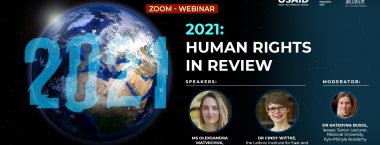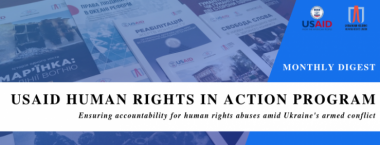
Action Plan for Implementing the Strategy for the Deoccupation and Reintegration of Crimea. What has changed?
On April 4, 2023, the Cabinet of Ministers of Ukraine (CMU) approved Order No. 288-r,...
03 May 2023
24.04.2019
After the occupation of the Autonomous Republic of Crimea and the city of Sevastopol by the Russian Federation in February-March 2014 and the beginning of the armed conflict at eastern Ukraine, the overall human rights situation in these territories has deteriorated significantly, which is evidenced by numerous reports of international agencies and human rights organizations. In light of this, the role of the bar [“advokatura” in Ukrainian] as an important tool for the protection of human rights and freedoms becomes even more important. Existence of truly independent bar comprising guaranteed protection of advocates’ rights and professional practice is an integral part of fair justice and a key pillar within the human rights protection system. The “Advocates under Occupation” report is being the first attempt to study and systematize the information available regarding the situation with bar and cases of advocates’ persecution in the non-government-controlled and occupied territory of Ukraine in connection with their professional activities.
Full report is available here.
The report was prepared by experts of the Ukrainian Helsinki Human Rights Union in cooperation with the Regional Center for Human Rights, as well as with lawyers and advocates from various regions of Ukraine, including those from the occupied territories, and internally displaced legal professionals. Its purpose is to examine the situation with the bar of Ukraine, the rights of individual advocates, and the risks they face when pursuing their profession in the context of Crimea’s occupation and armed conflict in east of Ukraine.
The paper is focused on analysis of facts and assessment of the situation with implementation of professional standards and observance of guarantees for practice of advocates in these territories, on identification of threats and risks that advocates are facing with, and on development of recommendations to improve the situation. It covers the period between 2014 and 2018 and was held under the conditions of limited access to information at the occupied territories.
The report is based on data available from the open sources, media, as well as replies from the relevant public agencies, structures and professional associations. In frames of its development, the authors interviewed advocates from the occupied territories by conducting face-to-face and online interviews. Because of underlying threats and risks, many of the questioned advocates expressed the wish to remain anonymous.
The Report consists of three sections:
The Report also presents key conclusions and proposes a number of recommendations to the national public authorities and law-enforcement agencies, Ukraine’s advocate self-governance bodies, occupational authorities and the Russian Federation government, as well as to the international community as regard implementation of measures aimed at protecting the rights of advocates who keep on their practice under conditions of occupation and armed conflict or who have relocated from the occupied territory.
If you find an error on our site, please select the incorrect text and press ctrl-enter.

On April 4, 2023, the Cabinet of Ministers of Ukraine (CMU) approved Order No. 288-r,...
03 May 2023

The Civil Society Summit on the Council of Europe (CoE) took place in The Hague...
31 March 2023

Time and place: 16:00-17:30 EET. The webinar will look into the interplay of the Russia-Ukraine...
16 December 2021

We would like to offer you the Digest of the Ukrainian Helsinki Human Rights Union,...
18 November 2021